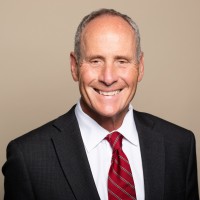(This story is from our new Health Tech newsletter. If you’d like to sign up, just click here.)
The digital health company Hims & Hers has started prescribing a cheaper, compounded version of a popular GLP-1 weight loss drug, a move that experts say could land the company in pharma companies’ crosshairs.
Hims said Monday that it will offer compounded semaglutide, the active ingredient in Novo Nordisk’s diabetes drug Ozempic and obesity shot Wegovy, months after a similar move by rival startup Ro. Hims’ stock $HIMS rose nearly 30% on the announcement.
The tactic could be a workaround to the high costs and short supply of the brand-name versions of the drugs. But prescribing compounded semaglutide could also risk legal or business challenges from Novo Nordisk.
While it’s legal for pharmacies to compound drugs during a shortage, Novo has filed 12 lawsuits against medical spas, clinics and pharmacies across the country for how they marketed and sold compounded semaglutide. Eli Lilly has also sued businesses over compounded versions of its obesity drug Zepbound.
A spokesperson for Novo told Endpoints News that it’s the only company selling FDA-approved medicines with the ingredient, and misbranded drugs may contain unknown impurities that could harm patients.
“Consistent with our commitment to patient safety, Novo Nordisk will continue to pursue legal action against other entities engaged in similar conduct,” the spokesperson said.
 Patrick Carroll
Patrick CarrollWhen asked if Hims is worried about legal trouble, Hims Chief Medical Officer Pat Carroll told Endpoints in an email that while the company monitors how the supply and the legal landscape is changing, it’s focused on meeting customers’ demands in a clinically safe and affordable way.
Hims, which offers telehealth visits and medication for a variety of conditions from mental to sexual health, launched its weight loss program in December, giving patients access to digital health tracking tools and oral medication. Even before the expansion into compounded GLP-1s, the company said during earnings in February that it expected its weight loss program to bring in over $100 million in revenue in 2025.
Pharmacies can make copies of brand-name drugs, a process known as compounding, when there is a supply shortage. Compounded drugs are not the same as generic drugs, and they aren’t tested or approved by the FDA for safety or efficacy. The agency has warned that some products sold as semaglutide might not contain the same active ingredient as FDA-approved products.
Carroll said Hims did research for more than a year to find a quality supplier, and it has partnered with a compounding pharmacy that’s registered with the FDA. The pharmacy has a rigorous quality program and data showing its product works, he said.
Still, offering compounded semaglutide could be risky for Hims.
“We tell all our pharmacies that are contemplating this to consult their attorneys. Novo or Lilly can sue anybody they want anytime, so is there some risk? Certainly,” said Scott Brunner, CEO of the Alliance for Pharmacy Compounding.
Martha Rumore, senior counsel at law firm Frier Levitt, said companies that put drugmakers’ brand names in promotional materials could be at risk for legal trouble.
“Lots of companies are taking a chance and doing that, but that’s where the brand company then gets triggered to do something,” she said.
For now, Hims is not prescribing brand-name GLP-1 drugs but plans to do so when there’s more supply. It also plans to sell compounded tirzepatide in the future, Carroll said.